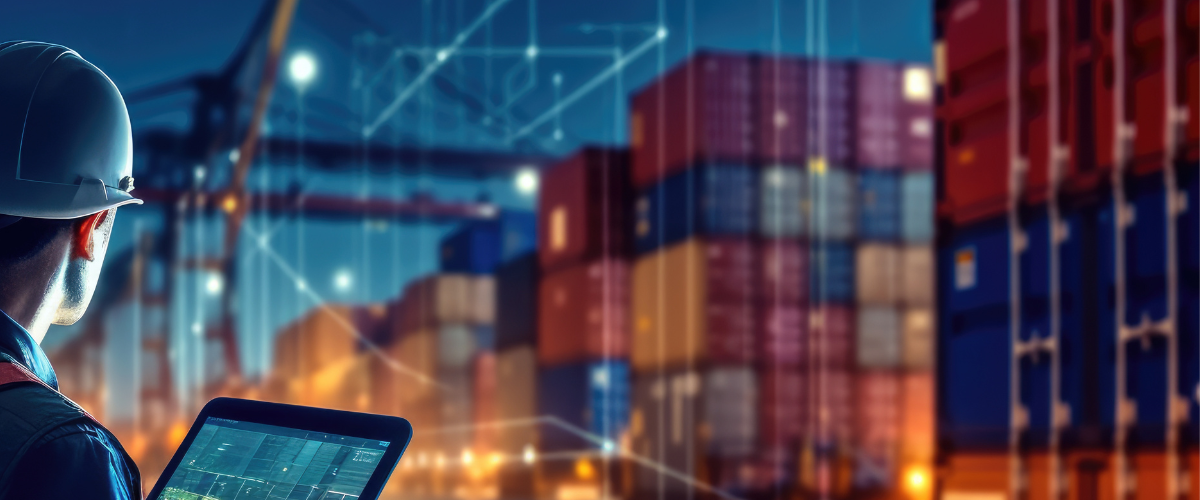Disruptions are now commonplace events and have impacted supply chains with increasing frequency since the COVID-19 pandemic. In addition to geopolitical and economic factors that affect global trade, importers and freight forwarders also have to deal with challenges like energy shortages, labor costs, geopolitical crises, and uncertain weather conditions. All these factors exert inflationary pressure on operating expenses for manufacturers and exporters.
According to the 2024 Agility Index Research study by Epicor and Nucleus Research, nearly half of the surveyed companies across the make, move, and sell industries consider escalating costs as their foremost challenge.
Even stronger evidence of the penetration of AI and ML is found on the fact that the majority of companies surveyed have already began using these technologies in supply chain applications, to address such challenges.
Incorporating AI and ML technologies has also been pivotal in enhancing supply chain resilience, allowing businesses to maintain robust production capacity and manage supply chain risks effectively.
High Growth Businesses adopting AI and ML
The trend is especially pronounced among high-growth businesses operating in a highly dynamic and competitive environment. The need to ensure agility and resilience that will counter potential supply chain disruptions has spurred these companies to leverage AI and ML-powered technologies. These companies are leveraging advanced technologies, such as neural networks, to enhance their operational efficiency and decision-making processes. Incorporating AI and ML in operations has created a positive cycle, where the benefits of technology help these companies grow even faster and maintain their dominant position in their industry.
The 2024 Agility Index also found that 63% of high-growth businesses (with revenue growth of 20% or more over the past three years) have integrated generative AI into their supply chain operations. This has enabled these companies to manage costs and tackle operational challenges more effectively
Adoption of Generative AI across Supply Chain functions
The aspects of the business where generative AI was most widely used were customer service chatbots (72%), product descriptions (67%), natural language querying, reporting, and in-application assistance.
All these aspects involve customer interactions or analytics, highlighting the potential of generative AI.
With highly saturated markets compelling companies to become more customer-centric, it is essential to leverage technology to enhance customer service levels.
Generative AI plays a crucial role here. It can streamline customer interactions and enable more informed product design and feature development, by enabling companies to introduce sophisticated chatbots and comprehensive product descriptions.
Artificial Intelligence Applications in Supply Chain
For most businesses, critical decisions regarding the efficacy of the supply chain include demand forecasting and inventory maintenance. Demand forecasting forms the basis for most supply chain planning, as businesses plan subsequent activities based on this information.
Inventory management is equally important, as it is imperative to strike the right balance between having enough inventory on hand to ensure customer demand is met while avoiding overstocking and thus tying up financial resources and warehousing space in surplus inventory.
Additionally, computer vision is being utilized for tasks such as product inspection and inventory tracking, further enhancing the efficiency of supply chain operations. Businesses now rely on machine learning system(s) to optimize these decisions, with a reported 45% using it for inventory management and 40% for demand forecasting.
Future Investments in Artificial Intelligence and Machine Learning Technology
With the benefits ofAI and ML fast becoming evident, larger numbers of importers, manufacturers, and freight forwarders are incorporating these technologies into their entire supply chain planning.
As these automation technologies gain sophistication, the greatest anticipated impact will be experienced in terms of increased efficiency and productivity (32%), cost savings (26%), and improved supply chain automation (23%).
The effective deployment of AI and ML by high-growth businesses will incentivize other companies to use digital tools to augment their supply chains and close the technological gap.
The latest McKinsey research has revealed that not only has the rate of usage of AI and ML doubled in just under one year, but it is also expected to accelerate even more, with 75% predicting that generative AI will lead to significant or disruptive change in their industries in the years ahead.
It is, therefore, not farfetched to expect that AI and ML will mold the supply chains of the future, and companies that ignore this trend will do so at their own peril.
How KlearNow can integrate AI and ML in Supply Chains
As a market leader in the AI logtech solutions industry, KlearNow has provided innovative solutions for optimizing supply chain workflows.
In its endeavor to provide cutting-edge technological solutions to the logistics and transport industry, KlearNow has tapped into artificial neural networks and supervised machine learning algorithms to provide products intended to simplify various aspects of the holistic supply chain.
KlearNow’s products use AI to automate processes and smoothen supply chain operations, while their Intelligent Document Processing (IDP) functionality digitizes all documentation associated with customs clearance and the import process, resulting in more accurate, complete and timely compliance with customs formalities.
Users of various KlearNow logtech solutions have reported significant benefits, such as:
1) End-to-end Solutions: an integrated platform for trade document management, exception handling, customs filing, and real-time updates on customs statuses; ensuring seamless operations and effective management of supply chain processes.
2) Enhanced Visibility and Data Consolidation: helps provide a single source of real-time information aiding better decision-making and streamlining operations.
3) Cost Savings and Efficiency: reduced manual workload and increased operational efficiency to achieve cost savings of up to 30%.
4) Scalability and Adaptability: provides agility and quick response to disruptions with scalability to adapt to volatile market conditions and changing demands.
5) Empowering Workforce and Innovation: focus on innovation and value creation by automating routine tasks and leveraging enhanced training data to empower a motivated workforce to foster a culture of continuous improvement.
In the forthcoming years, AI will play an increasingly important role in logistics and transportation, by enhancing logistical efficiency through predictive analytics and augmenting the role of humans. The explosive growth in data, combined with the enhanced computing power, will enable AI to handle more complex tasks.
By embracing AI and machine learning models with KlearNow, supply chain operators can stay ahead of their competitors, overcome operational challenges, and drive sustainable growth.
If you aspire to stay ahead of the curve in global trade and international shipments, contact KlearNow today to schedule a demo.




